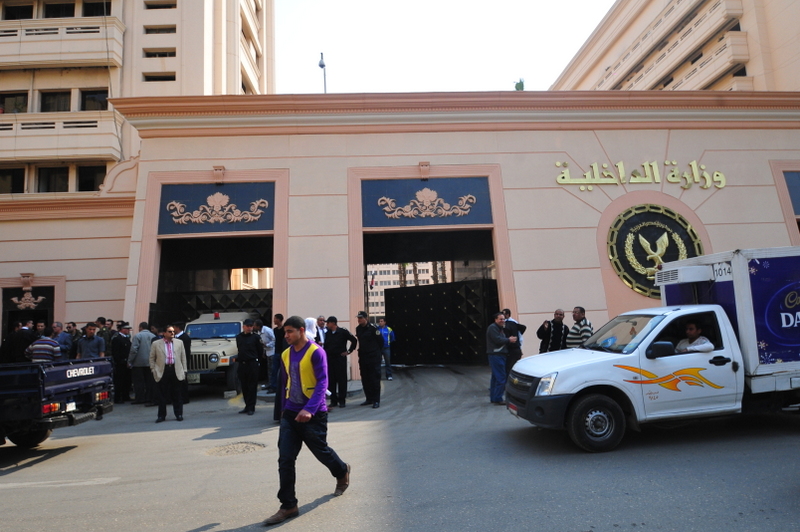Amid growing concerns about the state of human rights in Egypt, the Ministry of Interior published a report Saturday concerning the actions it has taken to address the issue in 2015.
The report stated that the ministry created 72 humanitarian initiatives, received and checked 45,970 complaints of various human rights violations, and gave 100 lectures about human rights. It stated that it also advanced the state of prisons and condition of prisoners.
The ministry’s disclosure closely follows the publication of a report authored by the Arab Organisation for Human Rights in the UK (AOHR) which stated that there have been 267 cases of extrajudicial killing by Egyptian security forces in 2015. Additionally, there has been controversy surrounding e National Council for Human Rights (NCHR)’s report on the deteriorating conditions of Al-Aqrab prison.
The ministry checked 45,695 complaints of human rights violations from various sources: 132 complaints from females subjected to violence crimes, 36 complaints related to child abuse, and 107 complaints submitted from the NCHR.
The ministry conducted 36 initiatives to assist and support elderly people, patients, and those with special needs to obtain national identification cards and birth certificates, including instituting a home delivery service.
The report claimed that observation rooms had been installed to monitor the behaviour of National Security Apparatus forces, a measure the report contends will help to document and limit human rights abuses.
15 initiatives allowed for visits for prisoners during public occasions and 21 initiatives provided psychological support for the victims of kidnappings and sexual violence.
The report stated that the ministry offered air conditioners inside some prisons in various police stations and accompanied NCHR delegates in their inspection visits to the prisons.
It further stated that it organised several cultural and awareness sessions for prisoners and participated in 30 events oraginsed by ministers, civil organisations and institutions, and national councils.
The report claimed that it had supported 100 lectures in various universities and institutes all over Egypt to spread the concept of human rights to students.
The report concluded that the ministry regularly inspects the prisons to observe any violations against prisoners, check their status, and solve their problems.
According to the international watchdog organisation Amnesty International, the Egyptian state has severely restricted freedoms of expression, association and assembly in its domestic sphere. Additionally, in a sweeping crackdown on dissent, security forces have arrested and detained thousands. Torture and the general ill-treatment of detainees remains pervasive and continues with impunity.
